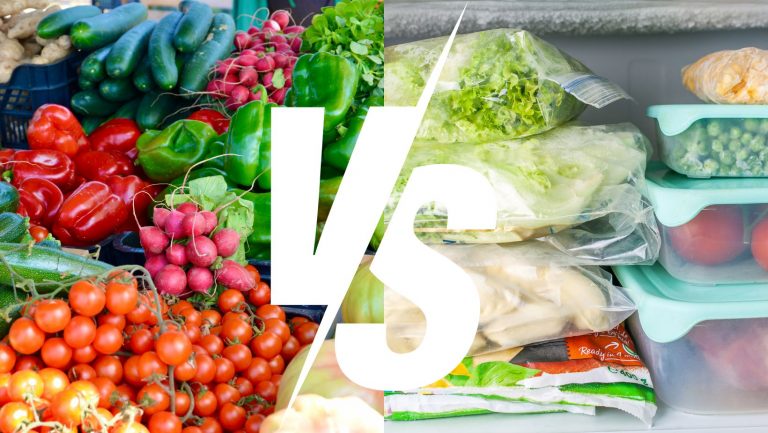The debate between fresh and frozen vegetables has been ongoing for years. Many people believe that fresh is always better, while others argue that frozen vegetables can be just as nutritious, if not more so. In this blog post, we will explore the findings of two recent studies conducted in England that shed light on this topic. We will also discuss the benefits of choosing local, farm-fresh produce and why frozen vegetables can be a great alternative when fresh options are not available or are of questionable quality.
The Studies: Fresh vs. Frozen
Two studies funded by the British Frozen Food Association found that some fruits and vegetables contain more beneficial nutrients when frozen as opposed to fresh. Researchers discovered that most of the fruits and veggies they tested scored better on antioxidant-type compounds, including Vitamin C, polyphenols, anthocyanins, lutein, and beta-carotene. This is likely because frozen produce is chilled soon after harvest, retaining higher levels of vitamins and antioxidants until consumed.
In the first study, researchers conducted 40 tests to measure nutrient levels in produce that had been sitting in a fridge for three days versus their frozen counterparts. They found that frozen broccoli had higher levels of Vitamin C, lutein, and four times more beta-carotene than fresh broccoli. Frozen carrots also had three times the lutein and double the beta-carotene, as well as higher levels of Vitamin C and polyphenols. Frozen Brussels sprouts scored higher on all nutrient measurements, while fresh spinach did better than frozen in some tests.
The second study found that levels of Vitamin C and polyphenols were much higher in frozen blueberries and green beans. Frozen blueberries also had more polyphenols and anthocyanins. The figures for raspberries and peas were roughly the same.
The Verdict: Frozen is Not a Bad Option at All
While eating freshly picked produce from your local farmers’ market is undoubtedly the healthiest option, these findings show that frozen vegetables can be a good backup choice. It’s important to note that “fresh” food in supermarkets can spend up to a month in the chain of producers, wholesalers, and retailers before reaching consumers.
Dr Michael Greger, a renowned nutrition expert, shares his thoughts on frozen fruits and vegetables: “Frozen can sometimes be healthier than fresh because frozen fruits and vegetables may be frozen on the day they’re picked, whereas so-called fresh fruit and vegetables in the produce aisle may have been on a ship from New Zealand for the last two weeks, exposed to air, exposed to light, and losing nutrition every day.”
Frozen vegetables offer convenience, as they are pre-chopped, pre-washed, and pre-peeled, with inedible parts removed. They are also shelf-stable and won’t rot in your fridge, making them a practical choice for busy individuals.
Be Aware, Know Thyself, Heal Thyself
In conclusion, while local, farm-fresh produce is the ideal choice for optimal nutrition, frozen vegetables can be a valuable alternative when fresh options are not available or are of doubtful quality. The studies mentioned above, although sponsored by the British Frozen Food Association, provide valuable insights into the nutritional benefits of frozen produce.
At Sparsh, We encourage you to make informed decisions about your food choices and prioritize your health and well-being. By being aware of the nutritional value of the foods you consume, you can take control of your health and work towards a healthier, happier life.


